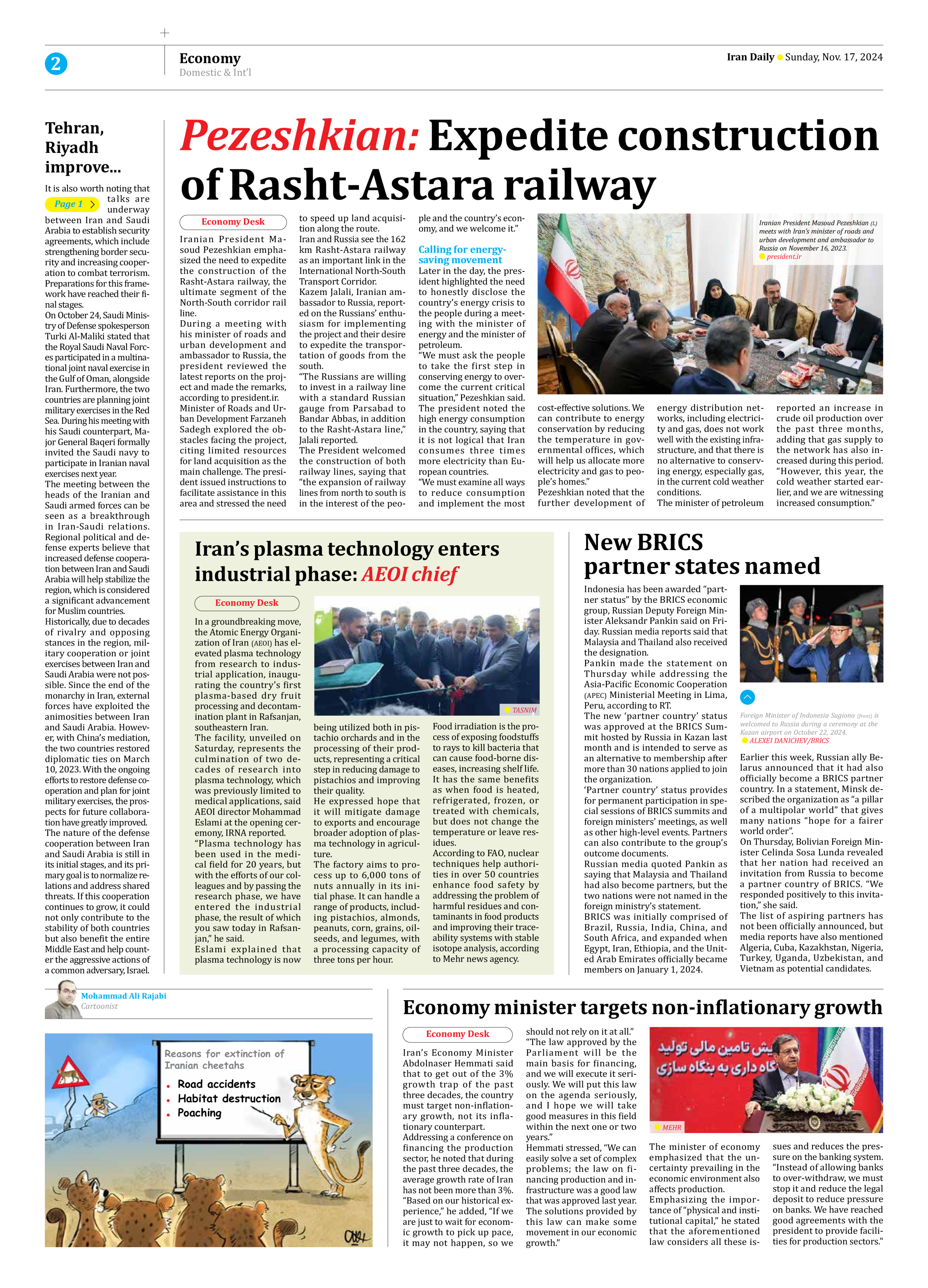
Pezeshkian: Expedite construction of Rasht-Astara railway
Iranian President Masoud Pezeshkian emphasized the need to expedite the construction of the Rasht-Astara railway, the ultimate segment of the North-South corridor rail line.
During a meeting with his minister of roads and urban development and ambassador to Russia, the president reviewed the latest reports on the project and made the remarks, according to president.ir.
Minister of Roads and Urban Development Farzaneh Sadegh explored the obstacles facing the project, citing limited resources for land acquisition as the main challenge. The president issued instructions to facilitate assistance in this area and stressed the need to speed up land acquisition along the route.
Iran and Russia see the 162 km Rasht-Astara railway as an important link in the International North-South Transport Corridor.
Kazem Jalali, Iranian ambassador to Russia, reported on the Russians’ enthusiasm for implementing the project and their desire to expedite the transportation of goods from the south.
“The Russians are willing to invest in a railway line with a standard Russian gauge from Parsabad to Bandar Abbas, in addition to the Rasht-Astara line,” Jalali reported.
The President welcomed the construction of both railway lines, saying that “the expansion of railway lines from north to south is in the interest of the people and the country’s economy, and we welcome it.”
Calling for energy-saving movement
Later in the day, the president highlighted the need to honestly disclose the country’s energy crisis to the people during a meeting with the minister of energy and the minister of petroleum.
“We must ask the people to take the first step in conserving energy to overcome the current critical situation,” Pezeshkian said.
The president noted the high energy consumption in the country, saying that it is not logical that Iran consumes three times more electricity than European countries.
“We must examine all ways to reduce consumption and implement the most cost-effective solutions. We can contribute to energy conservation by reducing the temperature in governmental offices, which will help us allocate more electricity and gas to people’s homes.”
Pezeshkian noted that the further development of energy distribution networks, including electricity and gas, does not work well with the existing infrastructure, and that there is no alternative to conserving energy, especially gas, in the current cold weather conditions.
The minister of petroleum reported an increase in crude oil production over the past three months, adding that gas supply to the network has also increased during this period. “However, this year, the cold weather started earlier, and we are witnessing increased consumption.”







